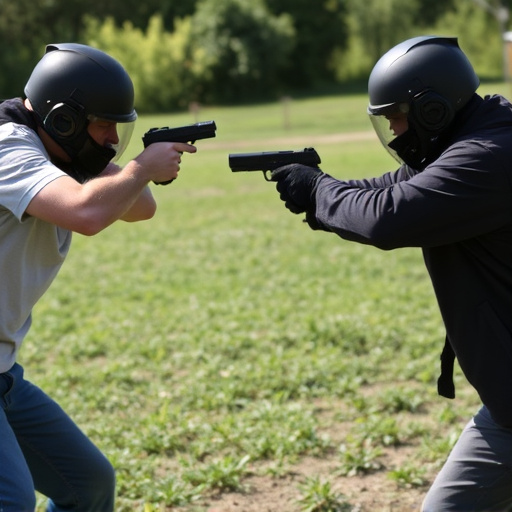Understanding state regulations is crucial before acquiring compact stun guns designed for purse carry in the US, as laws vary greatly from one state to another, impacting age limits, permit needs, and public spaces where their use is permitted or prohibited. Some states like Texas and Florida offer easier access with minimal requirements, while others such as New York and California have stringent rules, creating a complex legal landscape that requires individuals to research state-specific language, 'stand your ground' laws, and definitions of allowed weapons to ensure compliance and responsible self-defense without legal issues.
“Uncover the legal landscape surrounding compact stun guns with our comprehensive state-by-state analysis. In an era of heightened personal safety concerns, understanding your rights is paramount. This guide offers an in-depth look at regulations regarding compact stun guns for purse carry, breaking down complex laws into manageable insights.
From regulatory definitions to permit requirements and restrictions on places where you can legally possess a stun gun, this article equips you with the knowledge needed to navigate these laws safely and responsibly.”
- Understanding Stun Gun Regulations: A Comprehensive Overview
- State-by-State Analysis of Compact Stun Guns for Purse Carry
- Legal Considerations and Limitations: What You Need to Know
- Navigating the Laws: Tips for Safe and Legal Stun Gun Possession
Understanding Stun Gun Regulations: A Comprehensive Overview
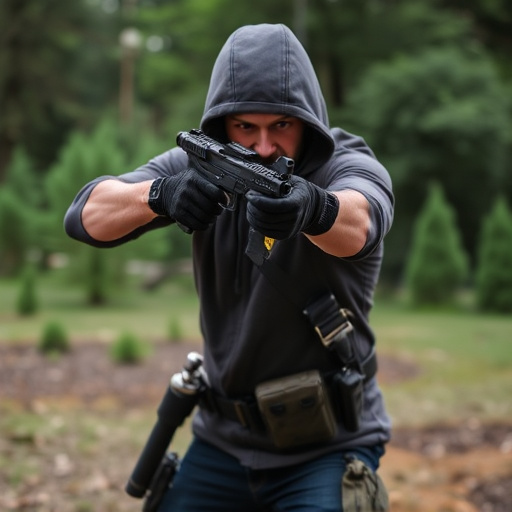
Understanding Stun Gun Regulations is a crucial step before considering the purchase and carry of compact stun guns, especially for those who prefer to keep them in their purses for self-defense. Each state in the US has its own set of laws governing stun guns, which can vary widely from one location to another. These regulations encompass aspects like age restrictions, permit requirements, and public places where stun guns are permitted or banned. Staying informed about these laws is essential to ensure compliance and avoid any legal repercussions.
When it comes to compact stun guns designed for purse carry, states with more lenient regulations offer greater accessibility. Some allow them without a permit, while others require a concealed carry permit (CCW). Specific provisions also dictate where these stun guns can be carried—on one’s person or in a bag—and whether they must be stored in a locked case. States like Texas and Florida are known for their relatively relaxed stun gun laws, making them popular choices for individuals seeking to protect themselves discreetly with compact stun guns.
State-by-State Analysis of Compact Stun Guns for Purse Carry
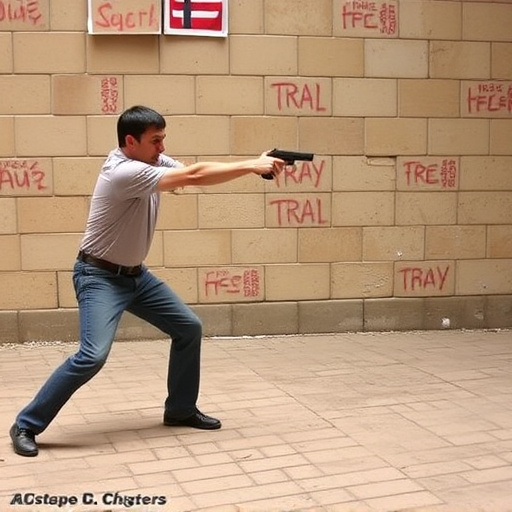
In the United States, the legal status of compact stun guns for purse carry varies significantly from state to state. A thorough understanding of these restrictions is essential for anyone considering carrying a stun device for self-defense. Some states, like Texas and Oklahoma, allow open carry of stun guns without a permit, making it easy for residents to protect themselves while on the go. Other states, such as New York and California, have stringent regulations, often requiring permits or specific circumstances for legal stun gun ownership.
When it comes to purse carry, compact stun guns face unique challenges. Several states have passed laws permitting hidden carry with a permit, but they may not explicitly include stun guns in their definitions of allowed weapons. This creates a gray area where compact stun guns might be legally carried in certain locations but not others. It’s crucial for individuals to research and understand the specific regulations in their state, as well as any local ordinances that could further restrict or permit purse carry of compact stun guns.
Legal Considerations and Limitations: What You Need to Know
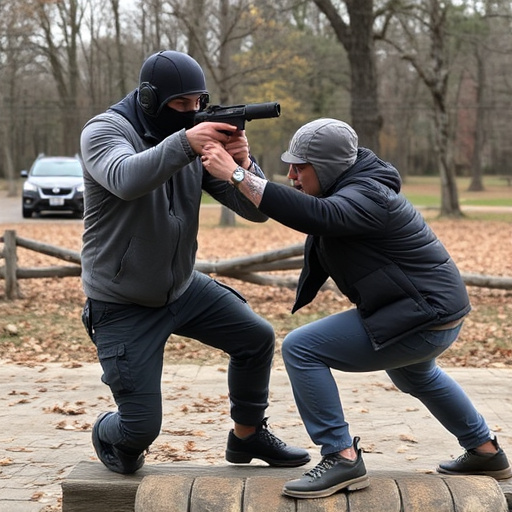
When considering the legal aspects and limitations of stun guns, especially the compact ones designed for purse carry, understanding state-by-state regulations is paramount. Each US state has its own set of rules regarding the possession and use of stun devices, which can vary widely. For instance, some states allow open carry with minimal restrictions, while others may require permits or limit their use to self-defense scenarios.
It’s crucial for individuals looking to carry a compact stun gun for personal safety to familiarize themselves with these laws. This includes understanding what constitutes legal defense and any age restrictions. Additionally, knowledge of ‘stand your ground’ laws and the specific language used in each state can significantly impact how and when a stun device can be legally employed.
Navigating the Laws: Tips for Safe and Legal Stun Gun Possession
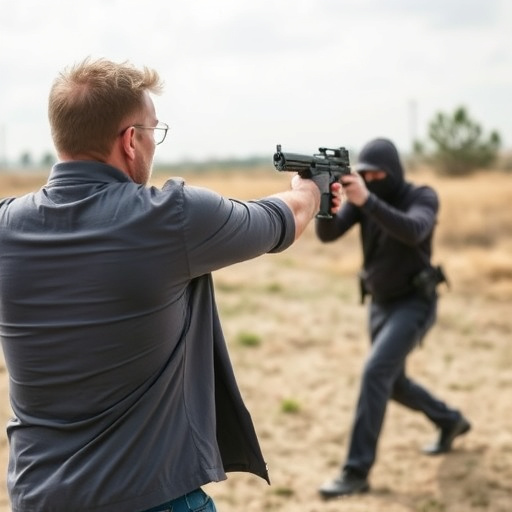
Navigating the laws surrounding stun gun possession can be a complex task, especially with varying regulations across different states in the US. When it comes to carrying compact stun guns for personal safety, understanding your state’s specific rules is paramount. Many states allow the open carry of stun devices, but restrictions on hidden or purse carry vary widely. Some states have strict requirements, such as permit-to-carry laws, while others may only mandate age restrictions or allow carry with certain types of self-defense training certificates.
For those seeking to legally own and carry a compact stun gun for personal protection, particularly in public places like malls or crowded events, staying informed is key. Check your state’s official legal resources and law enforcement guidelines to ensure you’re in compliance. Remember, laws can change, so regular updates are essential. By following these regulations, responsible citizens can protect themselves while avoiding any legal repercussions associated with stun gun possession.
In conclusion, navigating the legal landscape of stun guns requires a deep understanding of state-specific regulations, especially regarding compact stun guns for purse carry. This article has provided an in-depth analysis of current restrictions and offered valuable insights to ensure safe and legal possession. By staying informed about these regulations, individuals can exercise their right to self-defense while adhering to the law, making compact stun guns a practical option for personal safety without legal complications.
